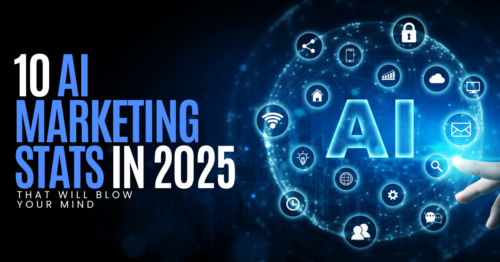In a world where digital behaviour is evolving faster than ever, the way consumers search for brand information is undergoing a major transformation. The days of relying solely on Google to “look it up” are fading. A new wave of tools—AI-powered platforms, social media channels, and voice assistants—is changing how people explore, evaluate, and engage with brands.
According to a recent study by Yext, a digital presence platform, nearly 45% of consumers now trust and use AI tools to find brand information. That’s nearly half of all customers turning to artificial intelligence instead of—or in addition to—traditional search engines.
🚀 The Search Landscape Is No Longer One-Dimensional
The research reveals a striking trend: while 64% still start their journey on search engines like Google, most don’t stop there. Consumers now use an average of three different tools or platforms to gather information about products and services—whether it’s looking up an “Italian restaurant near me” or the best hotel in New York.
Here’s how the new digital mix looks:
- 45% use AI tools (like ChatGPT or Bard)
- 51% use social media platforms (especially Instagram and TikTok)
- 28% rely on voice assistants (like Siri, Alexa, or Google Assistant)
- 94% search beyond the major platforms (Google, Bing, Apple, Facebook)
Among Gen Z, the shift is even more dramatic:
- 71% use Instagram as a search engine
- 66% go to TikTok to explore brands and products
🧠 The Rise of AI: A Double-Edged Sword
AI is becoming a trusted companion in the discovery journey. Around 49% of consumers say they trust AI-generated search engine summaries, such as Google’s AI Overviews. That trust is a game-changer for brands—but it also raises the stakes. If the AI pulls incorrect or outdated data, the brand suffers.
What does this mean for marketers?
According to Yext’s Senior Director of Insights, Anthony Rinaldi, Google impressions have dropped 8–20% in the last two years, signaling a clear shift. As chatbots, generative AI, and social search grow more dominant, marketers must rethink their strategies.
The focus is no longer just SEO rankings and keyword stuffing—it’s about intent, context, and omnichannel presence.
⚠️ Inaccurate Information = Lost Customers
One of the biggest frustrations for today’s digital consumers is outdated or missing brand information. The report reveals:
- 56% of customers feel annoyed when they find outdated details about a brand.
- 57% say that accurate, detailed info helps build trust.
- And most critically, 64% would switch to a competitor if they encounter inaccurate or missing information during their research.
So, while consumers may be embracing new tech for discovery, they expect brands to keep up—to deliver consistent, accurate, and up-to-date information across every touchpoint.
✅ The New Marketing Mandate: Be Where Your Customer Searches
As customer behavior fragments across multiple platforms, it’s no longer enough to dominate the first page of Google. Marketers must ensure brand accuracy across all digital channels—from AI databases to social media bios and voice assistant listings.
Here’s what modern marketers should focus on:
- Structured and authoritative data that AI tools can trust
- Omnichannel consistency, so whether your customer finds you on TikTok or Siri, the information is correct
- Adaptable strategies that follow intent rather than platform-specific algorithms
📌 Final Thoughts: The Cost of Inaction is High
AI isn’t just an emerging trend—it’s already redefining consumer expectations. With millions now using AI tools to make decisions faster, more confidently, and across more platforms, the brands that win will be those who meet customers where they are—not where they used to be.
Failing to adapt doesn’t just mean fewer clicks. It means lost trust, missed conversions, and becoming invisible in the places your customers are now searching.







